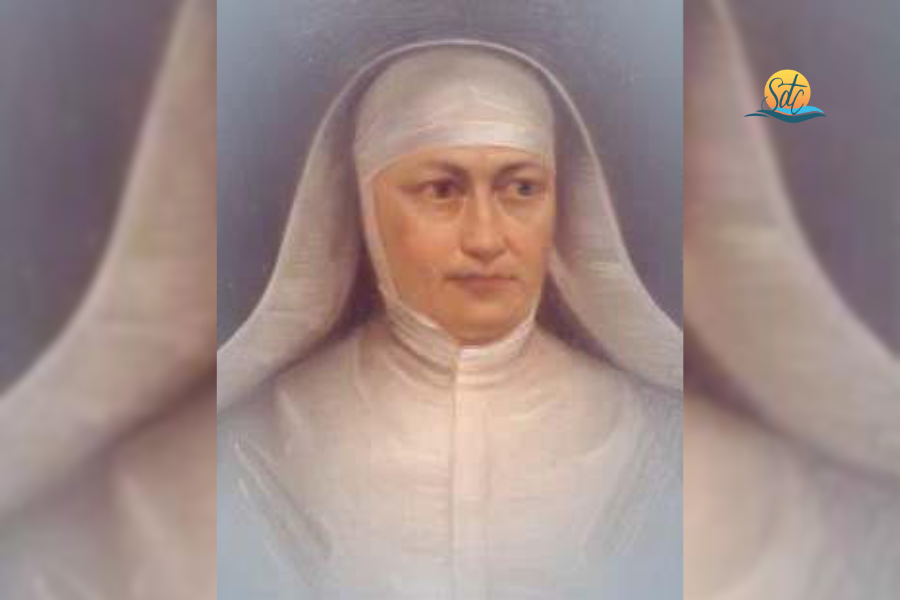July 1834, in the Central Italy Gazette: ‘These young women who have left the comforts of their father’s house, the memories of history and family, to endure so many hardships, willing to joyfully lose their lives if necessary, these voluntary victims of charity…’.

The journalist of the time spoke of the nuns coming from Naples and destined for the Modena foundation:
- Sister Rosalia Thouret, French, superior
- Sister Elena Gruz, Savoyard
- Sister Cecilia Pellegrino, from Naples
- Sister Amalia Amarante, also from Naples
- Sister Colomba Mercieri, Savoyard
- Sister Eufrasia Chabrol, Savoyard
- Sister Carolina Brunet, Savoyard.
We owe to this multicultural community – France, Savoy, Naples – the opening in the Duchy of Modena, later in Rome, and then in the main cities of central Italy, of numerous communities of Sisters of Charity in hospitals, orphanages, kindergartens, women’s conservatories, schools and boarding schools, psychiatric hospitals.
The 1930s and 1940s, in Italy, were characterised by numerous initiatives to modernise and strengthen hospitals, including psychiatric hospitals, charitable institutions for the care of poor and abandoned children, and educational institutions dedicated to the education and upbringing of the youth of the working classes. In those years, the figure of the hospital nun was irreplaceable, of the nun-educator in charge of prevention to protect young girls in danger, to be gradually reintegrated into society, of the nun-teacher of both poor and well-off girls.
Contributing to the expansion of the Sisters of Charity communities in Central Italy, of course, were the growing requests for intervention made by Duke Francis IV of Modena and the equally pressing and numerous requests made by the bishops of the dioceses of the Marches, Emilia and Romagna.
Certainly the enterprising character, tireless temperament and great strength of spirit of Sister Rosalia Thouret, niece, secretary and first biographer of the Foundress of the Sisters of Charity, contributed.
And last but not least, the great spirit of sacrifice and self-denial shown by the nuns, who in just a few years also began to flow in from the Duchy, serving in the hospitals of Modena, then Ravenna, Reggio Emilia, Ferrara and Faenza.
Everywhere the sister-nurses were called to improve care activities and encourage the economic and disciplinary reorganisation of the hospitals. They were entrusted with the direction and operational management of the Halls, with the task of supervising the care of the sick, coordinating the nurses, working alongside doctors and surgeons to record and verify the results of medical examinations. Much time in the hospital day was devoted to spiritual care: spiritual readings every day in the ward, instruction in Christian Doctrine, the rosary, in the morning and evening, together with the sick ‘the Christian’s prayers’, the most assiduous presence at the bedside of the sick in times of aggravation and agony.
On the scholastic and educational side too, Sister Rosalie Thouret’s work was in close continuity with the experience gained in France and Italy by Mother Thouret and the first communities of the Sisters of Charity. Thus in Modena, in Reggio Emilia, in Ravenna, in Bologna, in Ferrara, in Cesena and in Rome, nuns who were educators and teachers were called to direct schools, conservatories, kindergartens, orphanages.
Like her aunt, Sister Rosalie Thouret was able to embody a new model of female religious life, capable of bearing witness, in a society marked by rapid and profound changes and by new forms of poverty and marginalisation, to the profound sense of a Christian faith lived under the banner of hard-working charity and attention to the poor and suffering, in the conviction that ‘serving the poor means serving Christ himself’.
The city of Modena,
with a Eucharistic celebration in the church of St Augustine,
where Sister Rosalie Thouret is buried
thanks the Lord for the 190th anniversary of the presence of the Sisters of Charity.
Sunday 28 April at 11 a.m.
The evening before, Sister Anna Antida C. will present the figure of Sister Rosalie Thouret






